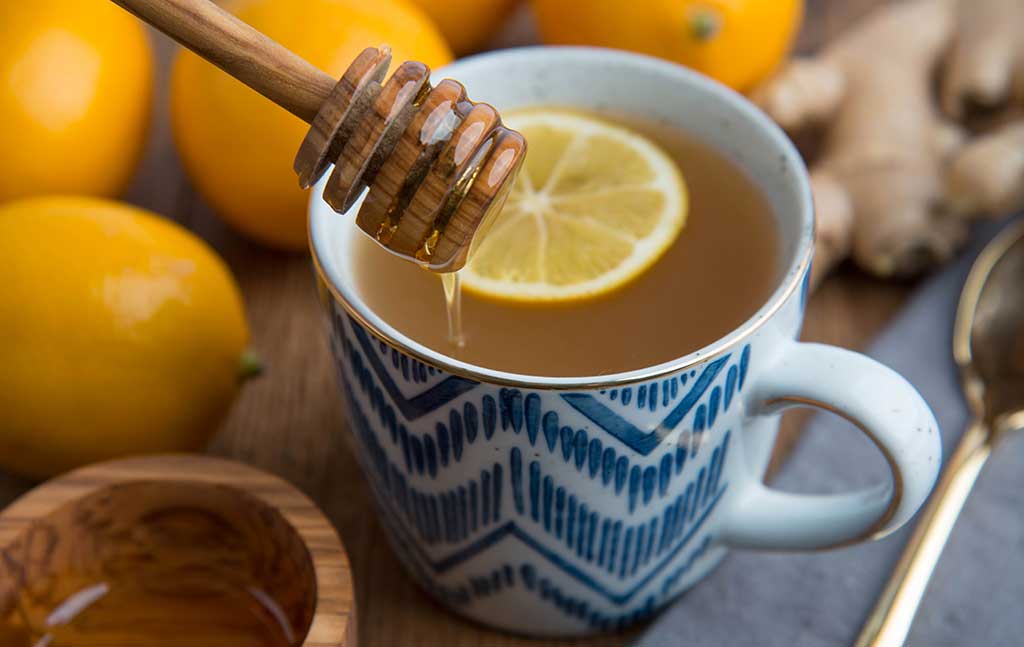Honey is one of teas best friends and if you're talking honey, you're probably going to want to be talking about Manuka Honey.
Australia and New Zealand are the worlds biggest producers of something called 'Manuka Honey', which has been undeniably popular over the past couple of years - found in anywhere from chemists to the supermarket and with price ranging from as little as $10 to over $100, depending on the origin and antibacterial grading.
Our brand is grown in Australia to fit with the theme of Tea Life striving to provide Australian grown tea!
Warning: This article gets a little sciencey.
What is the Manuka Honey Grading System?
Methylglyoxal (MGO)
MGO (short for Methylglyoxal) is probably what most people are familiar with. This is the number visible on the packet that normally ranges from 30 up to around 550. The higher that number, the higher the price.
Methylglyoxal is found in Manuka honey in concentrations 1000 higher than that of regular honey and is a reference to the strength of the antibacterial properties of contained within.
The easiest way to understand this grading system is that if honey is rated as 100+, this means that forever 1 Kilogram of Manuka Honey, there are 100 milligrams of Methylglyoxal.
Unique Manuka Factor (UMF)
UMF (Unique Manuka Factor) refers to the non-peroxide activity in the honey. NPA (non-peroxide activity) is also used, as UMF has been trademarked by certain New Zealand honey suppliers. They are, however, one and the same.
The numbers within the grading system for UMF are much lower than MGO and range from 10 to 25. Again, this number will also directly correlate to the price of the honey!

Antibacterial Properties of Manuka Honey
There are two main antibacterial properties of honey which are the Hydrogen Peroxide Activity (HPA) and the Non-Peroxide Activity (NPA) as mentioned above.
Hydrogen Peroxide Activity
The reason you'll find most Manuka Honey is stored in the darkest containers possible is that light affects the Hydrogen Peroxide contained within honey. Hydrogen Peroxide is unstable when exposed to light, heat, air, and microwaves. So if you're using a microwave to heat up your tea that contains Manuka Honey - you're not getting the full benefits!
The Hydrogen Peroxide activity is triggered by an enzyme named Glucose Oxidase. Firstly added by bees, the enzyme then breaks the glucose down to get all of that extra activity of Glucose Oxidase and Gluconic Acid.
Non-Peroxide Activity
This refers to an activity other than that caused by the above Hydrogen Peroxide Activity. Manuka Honey has other means by which to create antibacterial effects. Measuring this activity is used within the UMF and MGO ratings as discussed above.

Is Manuka Honey Safe to Eat?
Irritable Bowel Syndrome
All studies thus far have only shown benefits, but there are a few situations where one should avoid Manuka Honey. The first one is people with IBS (Irritable Bowel Syndrome). A study performed by Shuang Zhang et al. from China suggests that Manuka Honey will worsen the effects IBS sufferers are already experiencing.
The high Fructose content is also a contraindication, along with Manuka Honey having high concentrations of MGO which in itself produces IBS in those who are susceptible to it.
Diabetes
If you have diabetes, you should avoid Manuka Honey as high levels of MGO are already within your blood due to excess blood sugar. However, Manuka Honey can still be applied topically to any wounds diabetes sufferers may have.
MGO in itself and by itself is considered toxic and will combine with protein and DNA. When contained in honey, this effect disappears yet will still wondrously retain its bacteria-killing effects. Studies have still yet to confirm why this is the case, and it has yet to be discovered which compounds are interacting with GMO to produce the effect of being safe for human consumption yet causing bacteria to have 'system failure' and basically be destroyed.
Effects of Manuka Honey on Bacteria and Viruses
Bacteria and Virus known to be affected by Methlglyoxal within Manuka Honey are
Helicobacter pylori – This bug causes stomach ulcers.
Staphylococcus aureus – A known superbug that's resistant to most treatment.
Escherichia coli (E. Coli) – This baddie will give you food poisoning.
Streptococcus pyogenes – This will give you a sore throat!
Studies into Manuka Honey are still very much ongoing so we won't have the full story on possible complications and/or benefits until a later date.
When Should I Use Manuka Honey in Tea?
Honey is okay in almost all types of tea and Manuka Honey is certainly the honey of choice these days, but we find that most of our customers will be using it in conjunction with our herbal tea range. Many of our herbal teas are known for their medicinal properties, and some can be slightly bitter or just an unusual taste you're not used to.
This is where honey comes in and provides both extra benefits along with not negating the effects of the herbal tea you're drinking. It's rare that those that would be inclined to drink herbal tea would add sugar - so honey is about the only other option!
When adding honey to tea, it can add an extra layer of flavour and transform it into something else - much like milk does. So it can be fun to experiment and see what happens.



